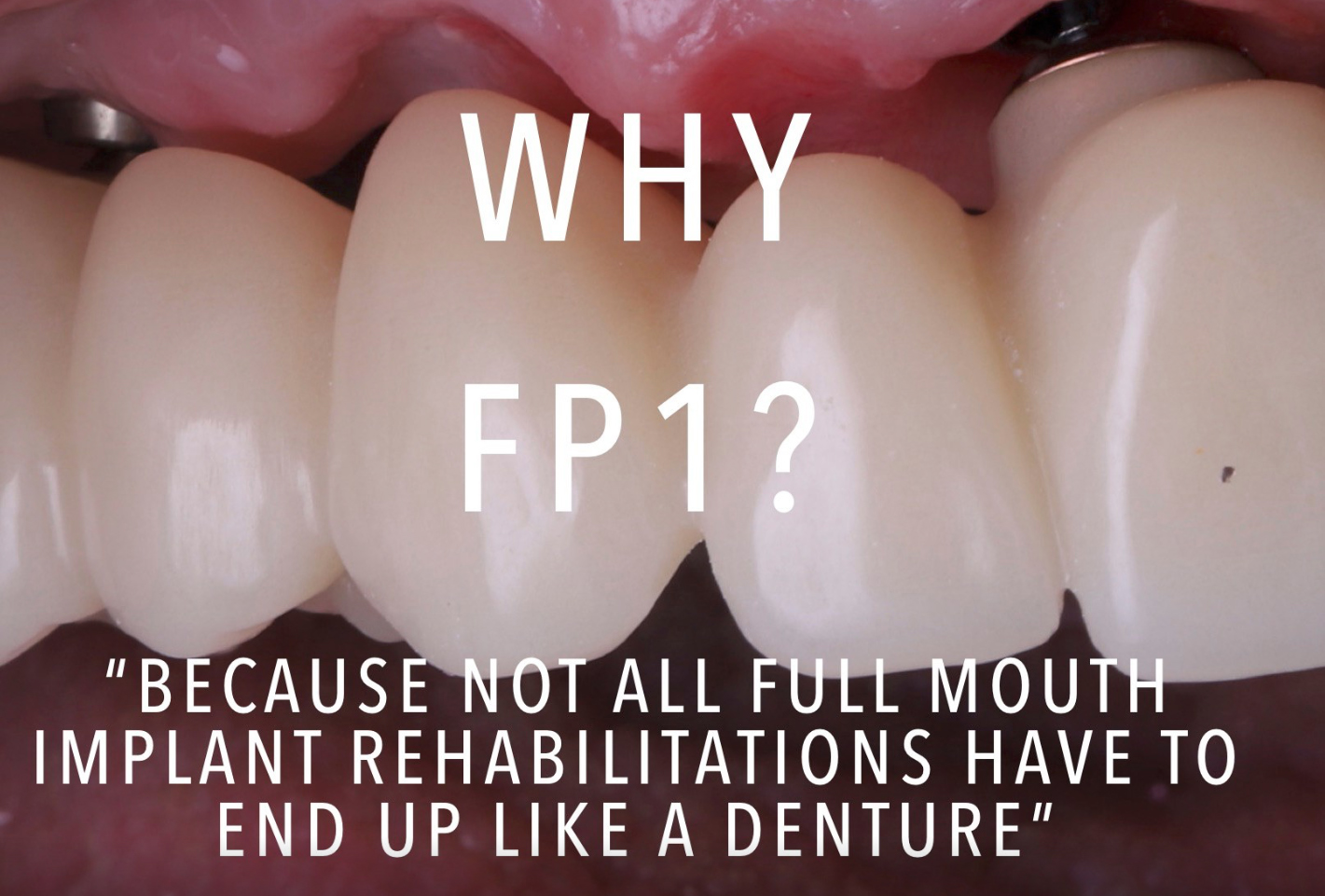Defy convention
Featured Products Promotional FeaturesPosted by: Dental Design 24th March 2020

Dental implant treatment with an immediately loaded full- or partial-arch restoration can completely transform the smile of patients with little to no teeth. There are many courses that teach you how to perform this procedure, but most train practitioners to reduce a significant amount of bone on the alveolar ridge in order to support a fixed prosthesis. Although this approach is applicable in some cases, it is not indicated for all. Furthermore, it goes against many implant dentists’ natural instincts to preserve and augment bone and gingiva.
Designed to defy convention, The FP1 Course aims to demonstrate that there is another option for full-arch implant reconstruction – one where the hard and soft tissues are preserved so that patients benefit from a highly aesthetic fixed restoration. Led by renowned implant dentists – Drs Martin Wanendeya, Paulo Carvalho and Nikhil Sisodia – this innovative new course explores a muco-gingival approach to full-arch dentistry that incorporates both digital and analogue processes. The FP1 Course is taught over two days through a series of insightful lectures and engaging hands-on workshops that are fully supported by Nik, Martin and Paulo.
Using various case examples, the highly experienced trio will guide clinicians through the key steps and stages involved with the full-arch rehabilitation workflow, including:
- Diagnosis and treatment planning: This will be the central theme of The FP1 Course, as it is the most important aspect of treatment.
- Digital smile design (DSD): Facial-driven treatment planning is a vital factor to the restorative process. Delegates will learn how to plan the final restoration with DSD and utilise this data in the following stages of treatment.
- Guided surgery: Delegates will be given a laptop and trained on how to use Dentsply Sirona’s Simplant software to plan implants and prosthetics. Guided bone regeneration concepts will also be discussed. Then a practical, hands-on session will give clinicians the chance to use a guided surgery kit and develop their understanding of how this can be applied to treatment.
- Soft tissue manipulation: A hands-on workshop will be delivered to demonstrate different techniques that are essential for achieving optimal soft tissue aesthetics through preservation, as well as horizontal and vertical augmentation.
- Immediate loading: The theoretical and practical knowledge required to immediately load an implant will be explored.
- Intraoral welding: Delegates will learn how to weld a frame intraorally and discover the benefits of this technique.
- Provisional restoration design: The design – including shape and contour – of the provisional restoration is crucial to achieving a desirable outcome, which will be demonstrated through another practical, hands-on session.
- Final restoration design: The design and materials that can be used to produce the final restoration will also be discussed.
The FP1 Course reveals how these elements of treatment facilitate the delivery of prosthetics that offer optimal function and aesthetics. Both digital and analogue workflows will be explored in-depth to show clinicians how they can put what they have learnt immediately into practice. By breaking down the planning, surgical and restorative processes of treatment, The FP1 Course demonstrates the possibilities of treatment with immediately loaded full-arch implants.
In addition, the exciting programme explores how the techniques and concepts learnt can be implemented into all areas of implant dentistry, as well as some aspects of more comprehensive smile design cases. With plenty of opportunities for delegates to pick the brains of experts, The FP1 Course gives practitioners the ideal platform from which to expand their dental implant knowledge and skills within a professional, supportive environment.
“Preserving hard and soft tissue within full-arch implant treatment offers several huge advantages, including improved aesthetics,” Martin says. “Patients can benefit from a truly natural-looking outcome with a restoration produced from high quality materials such as porcelain. This type of prosthesis can be designed more accurately and placed so that it emerges naturally from the gingiva for a superior functional and visual result. Approximately 25% of implant patients can be treated in this way. The FP1 Course is a campaign against the use of dentures with acrylic gingiva in suitable cases, particularly as the appearance of this type of restorative solution is disliked by many patients.”
Although the concepts of The FP1 Course cannot apply to every patient, like everything in life and in dentistry, clinicians must assess the clinical situation and make decisions on a case-by-case basis. If a patient is suitable for an FP1 restoration, then treatment can be delivered in the most minimally invasive and predictable way because – as Paulo puts it – “not all full-arch implant rehabilitations have to end up like a denture”.
“I very much enjoyed The FP1 Course,” says delegate, Dr Sandy Limerick. “It’s actually mind-blowing and will change my practice for the better. I just feel really privileged to have been part of such an excellent course.”
Join colleagues from both the UK and abroad for two days of in-depth exploration into full-arch implant procedures at The FP1 Course. For upcoming course details and to book your place, visit The FP1 Course Facebook page.
For more information, please visit www.facebook.com/FP1Course/








